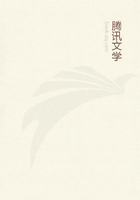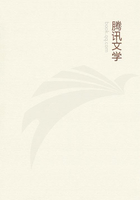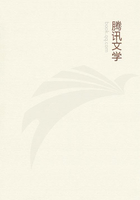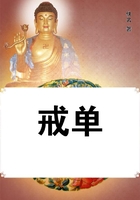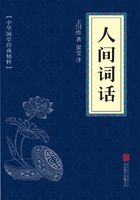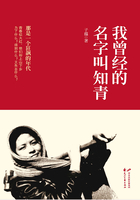In the first place, there is no affirmative evidence that Moses is the author of those books; and that he is the author, is altogether an unfounded opinion, got abroad nobody knows how.The style and manner in which those books are written give no room to believe, or even to suppose, they were written by Moses; for it is altogether the style and manner of another person speaking of Moses.In Exodus, Leviticus and Numbers, (for every thing in Genesis is prior to the times of Moses and not the least allusion is made to him therein,) the whole, I say, of these books is in the third person; it is always, the Lord said unto Moses, or Moses said unto the Lord; or Moses said unto the people, or the people said unto Moses; and this is the style and manner that historians use in speaking of the person whose lives and actions they are writing.It may be said, that a man may speak of himself in the third person, and, therefore, it may be supposed that Moses did; but supposition proves nothing; and if the advocates for the belief that Moses wrote those books himself have nothing better to advance than supposition, they may as well be silent.
But granting the grammatical right, that Moses might speak of himself in the third person, because any man might speak of himself in that manner, it cannot be admitted as a fact in those books, that it is Moses who speaks, without rendering Moses truly ridiculous and absurd: -- for example, Numbers xii.3: "Now the man Moses was very MEEK, above all the men which were on the face of the earth." If Moses said this of himself, instead of being the meekest of men, he was one of the most vain and arrogant coxcombs;and the advocates for those books may now take which side they please, for both sides are against them: if Moses was not the author, the books are without authority; and if he was the author, the author is without credit, because to boast of meekness is the reverse of meekness, and is a lie in sentiment.
In Deuteronomy, the style and manner of writing marks more evidently than in the former books that Moses is not the writer.The manner here used is dramatical; the writer opens the subject by a short introductory discourse, and then introduces Moses as in the act of speaking, and when he has made Moses finish his harrangue, he (the writer) resumes his own part, and speaks till he brings Moses forward again, and at last closes the scene with an account of the death, funeral, and character of Moses.
This interchange of speakers occurs four times in this book: from the first verse of the first chapter, to the end of the fifth verse, it is the writer who speaks; he then introduces Moses as in the act of making his harrangue, and this continues to the end of the 40th verse of the fourth chapter; here the writer drops Moses, and speaks historically of what was done in consequence of what Moses, when living, is supposed to have said, and which the writer has dramatically rehearsed.
The writer opens the subject again in the first verse of the fifth chapter, though it is only by saying that Moses called the people of Isracl together;he then introduces Moses as before, and continues him as in the act of speaking, to the end of the 26th chapter.He does the same thing at the beginning of the 27th chapter; and continues Moses as in the act of speaking, to the end of the 28th chapter.At the 29th chapter the writer speaks again through the whole of the first verse, and the first line of the second verse, where he introduces Moses for the last time, and continues him as in the act of speaking, to the end of the 33d chapter.
The writer having now finished the rehearsal on the part of Moses, comes forward, and speaks through the whole of the last chapter: he begins by telling the reader, that Moses went up to the top of Pisgah, that he saw from thence the land which (the writer says) had been promised to Abraham, Isaac, and Jacob; that he, Moses, died there in the land of Moab, that he buried him in a valley in the land of Moab, but that no man knoweth of his sepulchre unto this day, that is unto the time in which the writer lived who wrote the book of Deuteronomy.The writer then tells us, that Moses was one hundred and ten years of age when he died -- that his eye was not dim, nor his natural force abated; and he concludes by saying, that there arose not a prophet since in Israel like unto Moses, whom, says this anonymous writer, the Lord knew face to face.
Having thus shewn, as far as grammatical evidence implics, that Moses was not the writer of those books, I will, after making a few observations on the inconsistencies of the writer of the book of Deuteronomy, proceed to shew, from the historical and chronological evidence contained in those books, that Moses was not, because he could not be, the writer of them;and consequently, that there is no authority for believing that the inhuman and horrid butcheries of men, women, and children, told of in those books, were done, as those books say they were, at the command of God.It is a duty incumbent on every true deist, that he vindicates the moral justice of God against the calumnies of the Bible.
The writer of the book of Deuteronomy, whoever he was, for it is an anonymous work, is obscure, and also contradictory with himself in the account he has given of Moses.
After telling that Moses went to the top of Pisgah (and it does not appear from any account that he ever came down again) he tells us, that Moses died there in the land of Moab, and that he buried him in a valley in the land of Moab; but as there is no antecedent to the pronoun he, there is no knowing who he was, that did bury him.If the writer meant that he (God) buried him, how should he (the writer) know it? or why should we (the readers) believe him? since we know not who the writer was that tells us so, for certainly Moses could not himself tell where he was buried.
The writer also tells us, that no man knoweth where the sepulchre of Moses is unto this day, meaning the time in which this writer lived; how then should he know that Moses was buried in a valley in the land of Moab?

